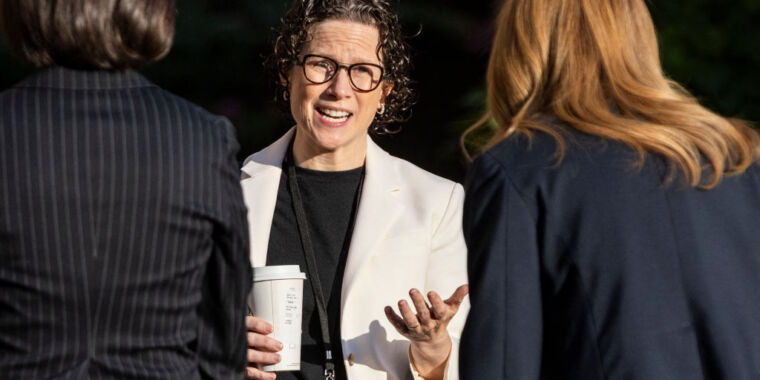On Monday, the US Department of Justice’s next monopoly trial against Google started in Virginia—this time challenging the tech giant’s ad tech dominance.
The trial comes after Google lost two major cases that proved Google had a monopoly in both general search and the Android app store. During her opening statement, DOJ lawyer Julia Tarver Wood told US District Judge Leonie Brinkema—who will be ruling on the case after Google cut a check to avoid a jury trial—that “it’s worth saying the quiet part out loud,” AP News reported.
“One monopoly is bad enough,” Wood said. “But a trifecta of monopolies is what we have here.”
In its complaint, the DOJ argued that Google broke competition in the ad tech space “by engaging in a systematic campaign to seize control of the wide swath of high-tech tools used by publishers, advertisers, and brokers, to facilitate digital advertising.”
The result of such “insidious” allegedly anti-competitive behavior is that today Google pockets at least 30 cents “of each advertising dollar flowing from advertisers to website publishers through Google’s ad tech tools … and sometimes far more,” the DOJ alleged.
Meanwhile, as Google profits off both advertisers and publishers, “website creators earn less, and advertisers pay more” than “they would in a market where unfettered competitive pressure could discipline prices and lead to more innovative ad tech tools,” the DOJ alleged.
On Monday, Wood told Brinkema that Google intentionally put itself in this position to “manipulate the rules of ad auctions to its own benefit,” The Washington Post reported.
“Publishers were understandably furious,” Wood said. “The evidence will show that they could do nothing.”
Wood confirmed that the DOJ planned to call several publishers as witnesses in the coming weeks to explain the harms caused. Expected to take the stand will be “executives from companies including USA Today, [Wall Street] Journal parent company News Corp., and the Daily Mail,” the Post reported.
The ad tech trial, which is expected to last four to six weeks, may be the most consequential of the monopoly trials Google has recently faced, experts have said.
That’s because during the DOJ’s trial proving Google’s monopoly in search, it remained unclear what remedies the DOJ sought. Some ways to destroy Google’s search monopoly could be “unlikely to create meaningful competition” or hurt Google’s bottom line, experts told Ars, but a more drastic order to spin out its Chrome browser or Android operating system could really impact Google’s revenue. It won’t be until December that the DOJ will even provide a rough outline of proposed remedies in that case, Reuters reported, with the judge not expected to rule until next August.
But the DOJ has been very clear about the remedies needed in the ad tech case, “asking Brinkema to order a divestment of Google’s Ad Manager suite of services, which is responsible for many of the rectangular ads that populate the tops and sides of webpages across the Internet,” the Post reported.
Because the most “obvious” remedy would be to require Google to sell off parts of its ad business, experts told AP News that the ad tech trial “could potentially be more harmful to Google” than the search trial. Perhaps at the furthest extreme, antitrust expert Shubha Ghosh told Ars that “if this case goes against Google as the last one did, it could set the stage for splitting it into separate search and advertising companies.”
In the DOJ’s complaint, prosecutors argued that it “is critical to restore competition in these markets by enjoining Google’s anticompetitive practices, unwinding Google’s anticompetitive acquisitions, and imposing a remedy sufficient both to deny Google the fruits of its illegal conduct and to prevent further harm to competition in the future.”
Ghosh said that undoing Google’s acquisitions could lead to Google no longer representing both advertisers’ and sellers’ interests in each ad auction—instead requiring Google to either pick a side or perhaps involve a broker.
Although the Post reported that Google has argued that “customers prefer the convenience of a one-stop shop,” the DOJ hopes to prove that Google’s alleged monopoly has shuttered newspapers across the US and threatens to do more harm if left unchecked.

